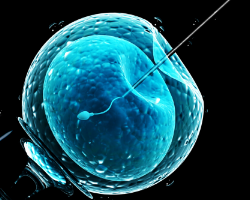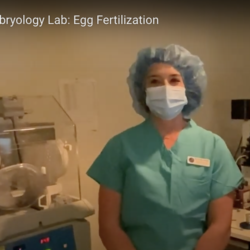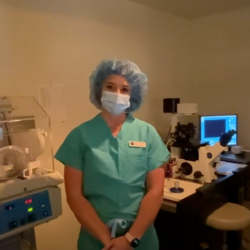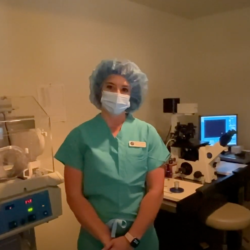
For those who are undergoing in vitro fertilization (IVF), there are a few distinct stages of this fertility treatment approach. This is what you can expect during the IVF insemination process.
Stages in the IVF process
The major stages of the IVF process include:
- Preparation, including testing and ovarian stimulation
- Retrieval
- Insemination
- Embryo transfer
During the preparation stage, your fertility team will first run tests to determine hormone levels, examine the ovaries, analyze sperm quality, and more. They’ll prescribe medications to stimulate egg production in your ovaries. If necessary, they’ll attempt to correct any underlying health conditions that may be leading to fertility challenges.
After ovarian stimulation, your fertility team will retrieve mature eggs. Usually, eggs are retrieved through the back of the vaginal wall using ultrasound imaging to guide them. Your fertility specialist will discuss the best approach with you.
Learn more about the IVF egg retrieval stage here. That post covers what you need to know about the procedure itself, how to prepare, and recovery.
Sperm retrieval often takes place at the same time as egg retrieval or immediately after, unless done before or taken from a donor.
The IVF insemination process
When your eggs and sperm are ready, they are passed on to your fertility team for the IVF insemination process.
Your eggs will be placed in a special medium and incubator. An embryologist will separate and remove the sperm from the seminal fluid, in a process known as sperm washing. This selects sperm with the highest motility and quality to fertilize the eggs.
There are generally two methods for insemination: conventional and intracytoplasmic sperm injection, or ICSI.
During the conventional IVF insemination process, thousands of sperm are transferred to a receptacle (typically a petri dish) that contains one or more mature and immature eggs. They’re incubated together and the sperm enters the egg on its own.
On the other hand, your team may choose to use the ICSI approach if:
- Sperm quality or motility is poor
- Previous IVF attempts have failed
- IVF is taking place with a previously frozen egg
Using an extremely small glass needle, your embryologist picks up a single sperm and injects it directly into a single mature egg. This technique improves the chances of fertilization, when severe male factor infertility problems are present.
Evaluation and embryo transfer
For most patients after the IVF insemination process, your fertility team will wait between 14 to 18 hours to evaluate the eggs. They’ll watch them closely to confirm that fertilization has taken place.
Successfully fertilized eggs, called zygotes, are monitored carefully over the next few days. The zygotes that continue to grow and develop turn into embryos and are candidates for embryo transfer. Our own Dr. Taylor, now retired, discusses this process in more detail in the following video.
Your team will transfer the embryo, that is most developmentally advanced, into the uterus five days after fertilization. Zygotes that are not used can be frozen for later use if further IVF cycles become necessary. You can learn more about the importance of single embryo transfers vs. multiple embryos here.
From there, you wait! You can learn more about when and how to test for pregnancy after IVF here.
Our approach at The Fertility Institute
When it comes to something as precious as introducing a new life into the world, it’s important that you entrust your fertility treatment to professionals with experience, compassion, state-of-the-art technology and techniques, and a history of success.
Founded by Dr. Richard Dickey in 1976, The Fertility Institute was responsible for the first in vitro fertilization (IVF) case in the Gulf South. Since then, we’ve been responsible for many other Gulf South and even nationwide firsts. This includes the first successful IVF pregnancy in a woman older than 44 in the United States. Our extraordinary track record attracts couples from throughout the region and country.
Part of the reason for our success is our devotion to treating every IVF case with the same unsurpassed care and gentle, precise touch that has proven so successful throughout our history. It is important that every stage of the IVF process is carried out with meticulous attention to detail, from beginning to end. At our fertility center in New Orleans, IVF insemination and every other phase of treatment is performed with this unwavering commitment to fulfill the dreams of our hopeful patients.
The better you understand the various stages of the IVF process, the more confident you will be in the decisions you make regarding your fertility treatment. For further information or to schedule your initial appointment at The Fertility Institute, please contact our team today. We can explain more about the IVF insemination process and other stages in IVF treatment.



